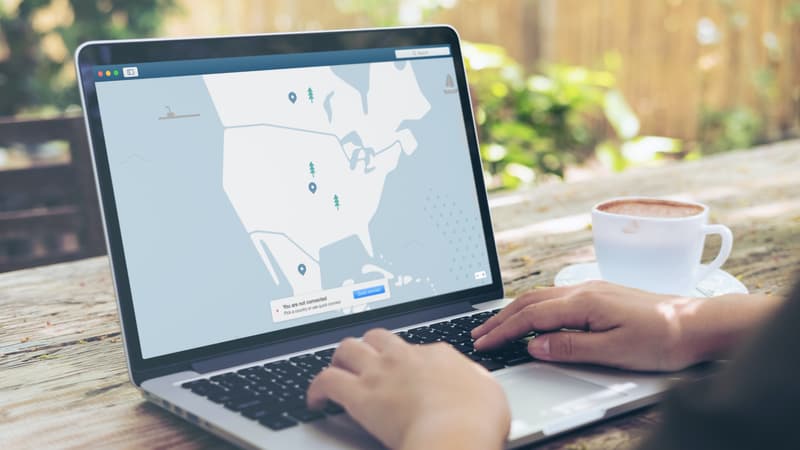We talk a lot about VPNs, and you have probably already been advised to use a VPN to browse anonymously, watch a show or series that is blocked in France, or even to take advantage of better prices on booking sites. When you are not necessarily up to date with the latest technologies, you can logically ask yourself if it is really a useful service, and above all reliable.
Because VPNs certainly promise anonymous browsing and unrestricted access to the Internet. This is often the case, but it’s still important to ask the right questions when you want to sign up for such a service. Does a VPN really allow you to be anonymous? Can we really download files or watch streaming videos without speed loss? Follow the guide!
VPN: but why use a VPN?
A VPN is a service that creates an encrypted connection between your computer and the Internet. The benefits are multiple, for example in terms of security. If you use the Internet on public Wi-Fi, you are not 100% sure of your level of protection. With a VPN, one can ensure that the connection is encrypted and that their data is not hacked.
A VPN also allows you to free up your Internet connection. Since your service provider doesn’t see your activity, they can’t limit the bandwidth of certain services and you benefit from an unrestricted connection, at least in theory.
Similarly, by allowing you to choose your geographical location, for example by connecting to a server located in the United States, a VPN allows you to access content that is blocked in your country, such as the entire catalog of streaming video services.
Finally, while some booking sites offer different prices depending on where you connect, choosing your location with a VPN ensures you get the best prices.
Is the VPN as useful as they say?
As you can see, the features of a VPN are very promising, and it can be said that most of the most used VPN providers generally deliver on this promise. You can effectively hide your IP address, connect from any country by choosing one of multiple servers, and bypass most content restrictions. In this sense, a VPN generally lives up to its contract, provided of course that you choose a reliable provider. The main ones are well known and it is possible to subscribe to them without fear of unpleasant surprises.
However, it is essential to know the limitations of VPNs. Because despite the services they provide, on the one hand they are not infallible, and also certain choices must be taken into account that may have consequences that are not always clear for users.
Therefore, one of the popular uses of VPNs is to circumvent media rights or timeline issues on certain video streaming or retrieval services. In general, it works pretty well, but the publishers of these services also go to great lengths to limit their use, even with a VPN. Therefore, it is possible that this or that service manages to prevent you from accessing its international catalog despite everything.
Also, there are two ways to use a VPN and this has implications for connection speed. Generally, in any case, even with the best protocols, it can be reduced compared to the performance you get without a VPN. If you use a VPN to be anonymous, it is recommended to choose the server closest to you. On the other hand, to circumvent the media timeline, connecting to a server in a distant country can slow down your connection more severely.
The BFMTV newsroom was not involved in the production of this content. BFMTV is likely to receive compensation when one of our readers makes a purchase through the links in this article.
Source: BFM TV


